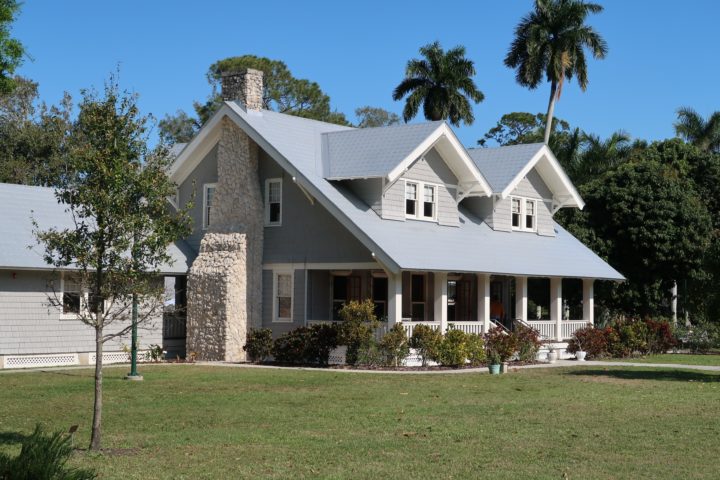The following contribution is from another author.
Whether you’re just moving in or looking forward to a lifetime spent in your new home, it’s a time filled with excitement. After all, your house is not just a place to live. It’s also where you plan to raise a family and where you want to spend many happy memories. Unfortunately, your home is also prone to minor problems that can quickly grow into major issues if they are not dealt with promptly.
This article will help you identify some of the most common home damage scenarios. And what you should do about them.
Water Damage
Water damage occurs when there is enough moisture in the air to penetrate the outer layers of your walls, floors, and ceilings. It can be caused by a leak, a burst pipe, or a blocked drain. If you notice any of these signs inside your home, do not ignore them. Instead, act quickly to prevent further damage.
If you discover water inside your home, you should act quickly to prevent further damage. If the water is inside your walls, ceiling, floors, or any other interior surface, you should immediately move any furnishings out of the affected areas. Inspect walking surfaces and carpets for signs of moisture, too. Where the water is inside walls, ceilings, or floors, you should also remove all wall cabinets and appliances to prevent them from being corroded or otherwise ruined. If standing water is on any surface outside your home, you should drain it immediately and call a professional drain cleaner.
If water has been left too long, don’t try and tackle it yourself. Instead, seek out water damage restoration professionals. This isn’t a job that you can DIY. You’ll need expert help.
Old Plumbing
If you’ve moved into an older home, you may notice that the plumbing is out-of-date. Although this is not necessarily a sign of impending trouble, staying on top of any plumbing issues is essential, as they could lead to damage. For example, if your home’s plumbing is 30 years old and you don’t replace it with new plumbing, it can become corroded or damaged by rust. If this happens, it will be much harder to fix. And you may have to replace more costly components like the water line or the entire plumbing system. If your home’s plumbing is more than 20 years old, you’ll want to hire a professional for a full inspection.
Faulty Foundations
A foundation is the most critical structure in any home, supporting everything from the walls to the floor. It could lead to severe damage if you have a problem with the foundation (or the underpinning of your home). One of the most common foundation problems is settling. This happens when the soil or soil beneath your home settles unevenly, causing it to tilt. This is especially common with older homes that were built on unstable ground. Settling can cause cracks in walls, floors, and foundations. As well as damage to exterior walls and doors.
If you notice that your home’s foundation is settling, you should act quickly to prevent further damage. Do this by calling in a professional team to assess the problems. They’ll be able to help you with the next steps.
Mold And Mildew
The ideal situation for homeowners is to have no issues at all when it comes to the elements. But this is not the case for most homeowners, who will face some sort of damage at some point. One of the most common issues is mold and mildew. Mold and mildew are fungi that feed off organic matter (such as wood, leaves, or food left in storage) and grow in dark, damp places. They can cause serious damage to your home if they are left to fester in areas like walls, floors, or ceilings.
Mold and mildew are difficult to get rid of because they love to grow in dark, damp places. Keep air vents clear and clean the walls and floors to prevent them from growing in your home. You may also want to install a dehumidifier in your home to maintain an ideal humidity level.
Full Gutters
A gutter is the part of your home that collects rainwater after falling from the roof. Ideally, your gutters will be able to contain all of the water from the rain and send it down your drains. But if this does not happen, your home could be damaged. When your gutter system is blocked, you will notice that the water level in your gutters increases quickly. If this happens in your driveway or ground level, it may not cause any damage. However, you will be in serious trouble if water begins to overflow into your walls, floors, or ceilings.
When your gutters are blocked, you should call a professional who can unblock them and prevent further damage. And make sure you have them cleaned at least once a year to keep on top of the job.
Standing Water
If you have a sump pump or a water-dwelling plant, you should change the water in your sump pump at least once a month. However, if the sump pump itself fills up with water, you’re in trouble. If you don’t empty the sump pump and change the water, it will eventually cause significant structural damage to your home. In addition to sump pumps, you should also check for standing water in all other potential sources of water damage: the water heater, the sponges in your toilets, and the pipes in your home’s walls.
If you find standing water, identify why it’s happening. Once you’ve done this, you’ll be able to fix the problem and clean up the standing water.
Stairs And Steps
Do you regularly have to walk up or down stairs in your home? If so, you should periodically check your steps and make sure that they are not leaking, are not loose, and are not buckling. If you regularly have to walk up or down stairs, especially challenging steps, you should also check for damage to the stairs themselves. For example, if the staircase railing is caving in, this could cause dangerous damage to your feet and ankles if you walk down the stairs.
To make your home safe, assess the quality of your stairs. Then make the necessary improvements to make them safe again.
Outdoor Elements
You may face a hefty bill if you have to repair damaged outdoor structures such as porches, decks, or patios. In addition to regular repair work, you should regularly check for damage signs. For example, if boards are missing from a deck or your patio is damaged. If you notice any damage to your outdoor elements, you should act quickly to prevent further damage. If your deck is buckling, you should remove any guests immediately and call a professional who can repair it. Similarly, if your deck leaks, you should remove any furniture and call a professional as soon as possible.
Animal Infestations
One of the most common signs of an animal infestation is droppings. In addition, if you notice any stains on your walls, floors, or ceilings, this could signify an infestation. If you suspect an animal may be responsible for damaging your home, you should immediately seek help from a professional. A pest control company will be able to identify the source of the damage and take action to resolve the issue.
The Bottom Line
No matter how careful you may be, there will always be damage that can occur in your home. The most important thing to do is to prevent it from happening in the first place. Periodically check your home for signs of wear, and make sure that any damage is repaired immediately.

















The faster you respond to any damage to your outdoor features, the less likely it is that those features will sustain any more harm. Guests should be asked to driving directions leave if your deck is sagging, and you should get in touch with a repairman as soon as possible. In a similar vein, if your deck is leaking, you should immediately clear the area and contact a professional.